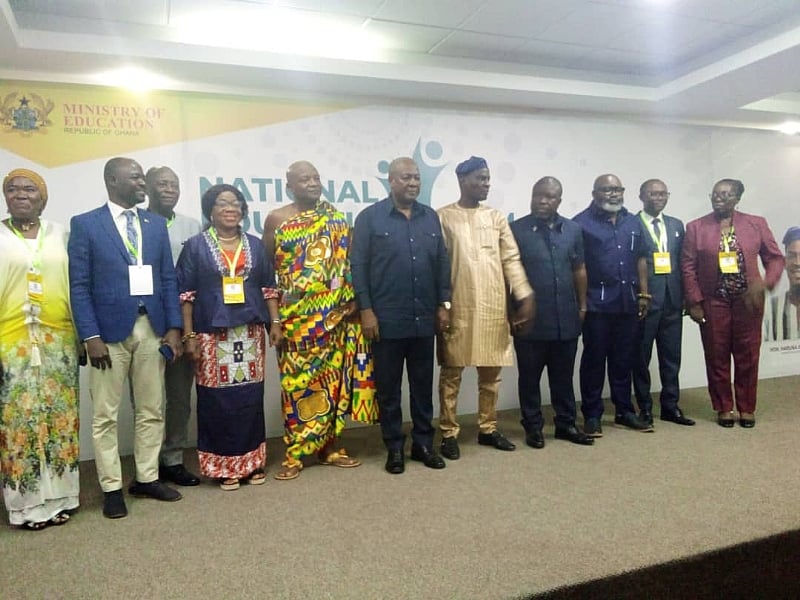Professor Joseph Seyram Agbenyegah, an international education expert, advocates for a paradigm shift in Ghana’s educational approach, emphasizing the adoption of a structured ideological framework akin to successful models implemented in nations like Finland, Singapore, and Malaysia. He posits that these countries have achieved sustained educational progress and socio-economic development by grounding their systems in a clearly defined ideology. This framework, he argues, provides a consistent direction for child development, ensuring that learning is intrinsically linked to core national values. Furthermore, he suggests that curriculum reform should prioritize flexibility while simultaneously incorporating a National Competency Framework to guide and measure progress, ultimately fostering a learning environment that cultivates curiosity, confidence, critical thinking, and collaboration. The National Education Forum, he believes, presents a crucial opportunity to reimagine Ghana’s educational goals, paving the way for an empowering system that equips individuals with the necessary knowledge, skills, values, and attitudes for sustainable development.
Central to Prof. Agbenyegah’s argument is the integration of values into the educational process. He advocates for a holistic approach to knowledge acquisition, extending beyond traditional academic learning to encompass a deep understanding of sustainable development principles, including the interconnectedness of social, economic, and environmental systems. He cautions that genuine educational transformation is contingent upon the cultivation of strong ethical values, emphasizing the importance of instilling in students a sense of responsibility, respect, and care for both society and the environment. These ethical foundations, he believes, are crucial for guiding individuals towards responsible citizenship and contributing to a sustainable future.
To ensure the financial viability of this transformative educational vision, Prof. Agbenyegah proposes a three-tiered financing model. This model would require affluent families to fully fund their children’s education, while middle-income earners would contribute partially, and those from lower-income backgrounds would receive free education. This tiered approach, he argues, would create a more sustainable system, alleviating the financial burden currently placed on the government by the existing model of free education for all. He contends that the current system, while well-intentioned, can lead to an unsustainable surge in student numbers, straining resources and potentially compromising the quality of education. This structured financial approach, he believes, would ensure both access and quality in education.
Beyond financial considerations, Prof. Agbenyegah emphasizes the critical need for a cultural shift in attitudes towards education. He argues that Ghana’s primary challenge in education is not financial but attitudinal, advocating for a move away from individualistic motivations toward a collective aspiration for educational excellence. He calls upon all stakeholders, including parents, educators, and policymakers, to actively participate in this transformative process, fostering a mindset that prioritizes education as a collective endeavor crucial for national development. This change in perspective, he believes, is essential for achieving meaningful and sustainable progress in the education sector.
Supporting Prof. Agbenyegah’s perspective, Prof. Kwame Acheampong, an international education development consultant, stresses the imperative of inclusivity, particularly for marginalized groups. He argues that a truly developmental education system must encompass all citizens, thereby maximizing the nation’s talent pool. Prof. Acheampong advocates for adopting global best practices and ensuring that reforms are driven by data and evidence-based results. He emphasizes the need for practical implementation strategies that prioritize stakeholder involvement, enhance capacity building, and utilize both medium- and long-term policy frameworks for sustainable impact. This comprehensive approach, he believes, will ensure that educational reforms are not only effective but also sustainable in the long run.
The National Education Forum, chaired by Togbe Afede, Agbogbomefia of Asogli, provided a platform for these crucial discussions on the future of Ghana’s education system. Togbe Afede commended President John Mahama for initiating the forum, recognizing its potential to shape a sustainable educational landscape. This event served as a critical step towards building a robust and equitable education system capable of empowering individuals and contributing to Ghana’s overall development. The insights and recommendations shared during the forum are expected to inform future policy decisions and shape the direction of educational reform in the country.


